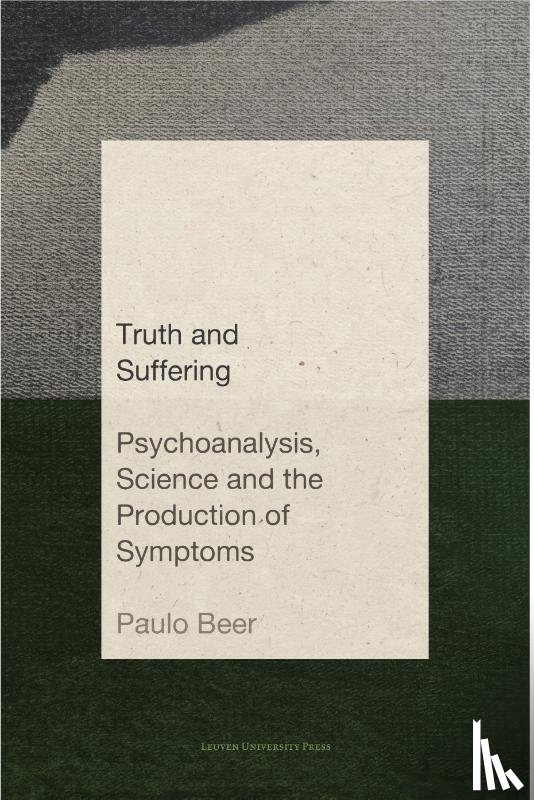Omschrijving
The question of truth within the construction of knowledge on suffering. Although truth occupies a central position in philosophy and the philosophy of science, there is much debate about its actual role in scientific practice. Truth and Suffering explores different conceptions of truth and their profound influence on our understanding and approach to suffering. By discussing how different definitions of truth shape distinct ways of producing knowledge, the analysis prompts reflection on the impact of knowledge production on people's lives.Drawing on the work of authors from psychoanalysis and the philosophy of science, this book challenges dominant mental health paradigms, particularly the hegemony of biologic psychiatry. It resists attempts to naturalise symptoms and emphasises the need for ethical and political factors to be consistently taken into account when addressing suffering.Offering a clear and original approach to an important and complex debate, Truth and Suffering is of interest not only to specialist readers in a variety of fields, ranging from philosophy of science to psychoanalysis, but also provides an introduction to newcomers interested in these discussions.Paulo Beer is a psychoanalyst, professor and researcher in São Paulo, Brazil.This is a very accomplished piece, which manages to stay focused and offer an important contribution to matters of ‘evidence’, ‘truth’ and what that means epistemologically and politically. The work is inviting, fluid, well-written and helpful to many scholars of related fields. - Ana Minozzo, University of Essex Although truth occupies a central position in philosophy and the philosophy of science, there is much debate about its actual role in scientific practice. Truth and Suffering explores different conceptions of truth and their profound influence on our understanding and approach to suffering. By discussing how different definitions of truth shape distinct ways of producing knowledge, the analysis prompts reflection on the impact of knowledge production on people's lives.
Drawing on the work of authors from psychoanalysis and the philosophy of science, this book challenges dominant mental health paradigms, particularly the hegemony of biologic psychiatry. It resists attempts to naturalise symptoms and emphasises the need for ethical and political factors to be consistently taken into account when addressing suffering.
Offering a clear and original approach to an important and complex debate, Truth and Suffering is of interest not only to specialist readers in a variety of fields, ranging from philosophy of science to psychoanalysis, but also provides an introduction to newcomers interested in these discussions. Foreword: Psychoanalysis and its role in re-founding a politics of truth
Nelson da Silva Junior
Introduction
Truth between knowledge and politics
Silencing the truth
Ways to ask about the truth
Ian Hacking and the critical advocacy of knowledge
Truth in psychoanalysis as the denial of the established order
Lacan and Hacking
Chapter 1: Science between truth and truthfulness
1.1. The question of truth in the philosophy of science
Truth and truthfulness
Entity realism and critique of representation
Intervention
Realism
The question of language
Intervention and causality
1.2 Styles of reasoning
The styles and the sciences
Methods of reasoning and objects
Self-reference
Styles and history
1.3 Social construction and radical relativism
What is constructed
Contingency, nominalism, and stability
Variability
Chapter 2: Historical ontology and transient mental illnesses
2.1 Truth, evidence, and biological objects
Some notes on the discussions about the differences in objects
The object and the subject between psychoanalysis and the philosophy of science
Influences
2.2 Making up people
Interactive kinds and retroaction
2.3 The transient mental illnesses
The centrality of knowledge and the niches
2.4 Multiple personality
Attempts at validation
Memory, truth, and causation
Depth knowledge and surface knowledge
Memory, truth, and psychoanalysis
Chapter 3: A form of truth of its own
3.1 The truth and nothing else
The ideal science of psychoanalysis
Truth separate from knowledge
3.2 Truth, psychoanalysis, sciences
Objects, truths, and falsehoods
Resistance between truth and defence
Truth and negation: negativity as style
Language
Stabilisation and experimentation
Validation
Chapter 4: A historical subject
4.1 Science and subject
Lacan and Descartes
Non-guaranteed knowledge
4.2 Dynamic nominalism in another style of reasoning
The sense of symptoms and the analytic processes
Symptom and truth
Discontent, suffering, and symptom as effects of negativity
Chapter 5: Problems and paths
5.1 Non-transient illnesses and stability
Objects, targets, and classifications
The reality of illnesses
5.2 The problem of excessive interactivity
Depression in Japan
The placebo questions
Crisis in psychiatry
5.3 A path: truth as cause
Truth as formal and material cause
Truth, cause, and ethics
Truth, negativity, and stability
5.4. One more path: truth and politics
Knowledge and politics
Truth and the political
Conclusion
Notes
References
Acknowledgements
Index


